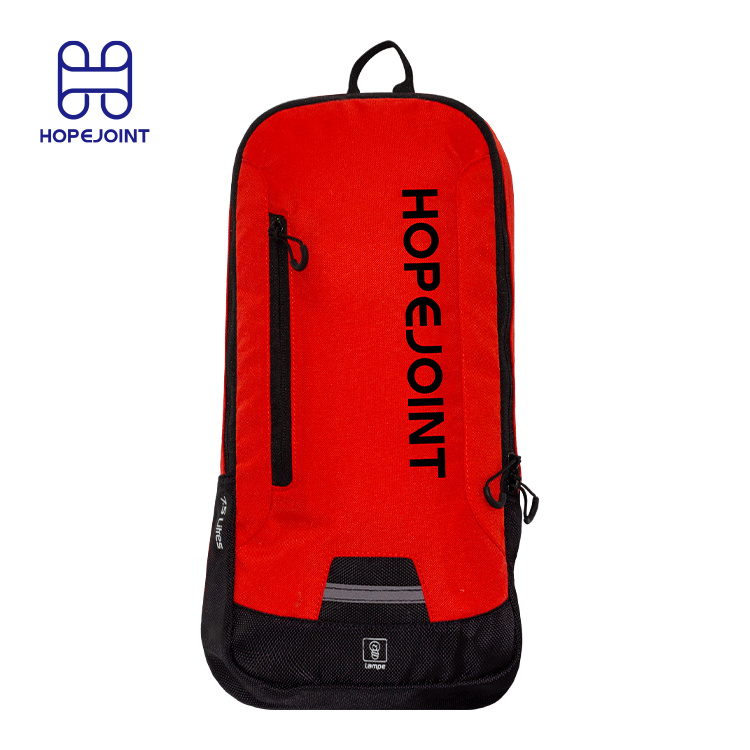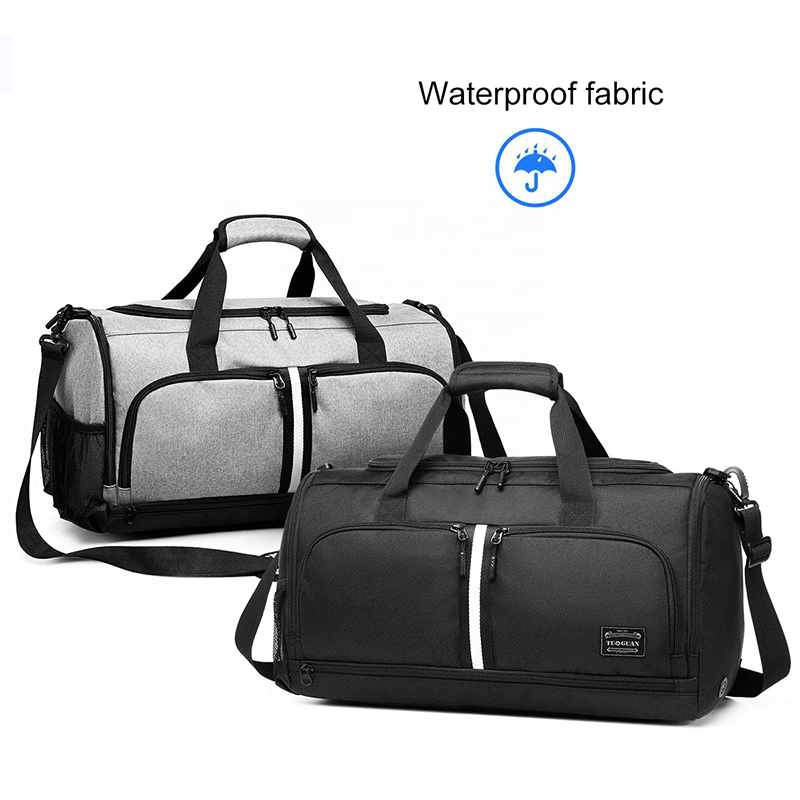This story was originally published on July 11, 2020.
Imagine this: An airline loses your checked bag. After an extensive search, customer support comes up empty-handed. They compensate you and life goes on. Hydration Bag

But life goes on for your suitcase, too. Written off as “unclaimed,” it sits in a musty collection depot for 3 months. Eventually, the airline sells it — along with hundreds of other lost suitcases and cargo shipments — to a private company, sight unseen.
The new owner cracks the lock, sifts through your former possessions, and marks them for sale.
A few days later, a retired mechanic named Charlie buys your grandfather’s watch for $150. A 19-year-old line cook acquires your Beats headphones. And a nurse from Florida becomes the proud new owner of the scarf your mom knitted you for Christmas.
This is the bizarre secondary market for lost luggage.
Every year, 4.3B bags are checked by airlines around the world. Around 25m of them (5.7 per 1k bags checked) end up lost or misdirected. The 0.03% of bags that are still not reunited with their owners after 90 days are sold by the airline.
Chances are, they are purchased by a company called Unclaimed Baggage.
Nestled in the small town of Scottsboro, Alabama (pop: 14.7k), Unclaimed Baggage holds the distinction of being “the nation’s only retailer of lost luggage.” Its massive 40k-sq-ft warehouse holds thousands of treasures lost in transit, ranging from rare instruments to monogrammed engagement rings.
Every now and then, a piece of luggage contains something truly extraordinary, like a suit of armor, an Egyptian artifact, or a camera used in NASA’s Space Shuttle program.
What are the ethics of reselling travelers’ intimate items? How does the process work? And how did one company come to monopolize this niche market?
Back in 1970, a man named Hugo Doyle Owens was at a crossroads.
Born and raised in Scottsboro, Owens had served in the Korean War and returned to his hometown to sell insurance. Between shifts, he spent every waking hour by his ham radio, using radio frequency spectrum to communicate to friends and strangers. At 39, he was restless and looking for his next adventure.
One day, through the radio chatter, he learned that a bus company in Washington, DC, had an enormous stack of unclaimed luggage it was looking to get rid of.
In those days, unclaimed bags were often thrown away or auctioned off to local junk shops. Few saw value in travelers’ lost wares. But to Owens, the suitcases — and the intrigue of their contents — were a perfect foundation to build a business on.
So, he borrowed $300 (~$2k in 2020 dollars) from his father-in-law and purchased the whole lot.
Doyle Owens with his ham radio, c. 1960s (via Unclaimed Baggage)
On the edge of town, Owens set up an informal storefront, crafted a sign (“Unclaimed Baggage”) by the door, and, with the help of his wife and 2 sons, splayed out his acquired items on card tables. He ran a small ad in the local paper, informing Jackson County deal-seekers of his new venture.
In less than 24 hours, he sold out of inventory and pocketed a tidy profit.
The novelty of sifting through lost luggage soon spread by word-of-mouth and Owen’s repeated the process. His boss eventually gave him an ultimatum: Sell insurance, or sell baggage. He quit and set out to turn his side hustle into a full-time job.
By 1978, Owens had struck deals to buy luggage from Eastern Airlines, National Airlines, and Air Florida (now defunct). In constant transit between DC, Miami, Cleveland, and Dallas, he was soon acquiring 3k pieces of luggage per month, with help from a staff of 6 people.
“We never know what’s in those suitcases until we open them,” he told the AP that year. “It’s like buying a pig in a poke.”
A man marks suitcases at Sydney International Airport in 1985 (Peter Morris/Fairfax Media via Getty Images)
Even the most macabre of items seemed to intrigue his customers: A marble tombstone inscribed with a name and a date of death was purchased by a gentleman who made it into a coffee table. An Amazonian shrunken head (found in a suitcase in the pre-TSA days) found a home with a doctor in Birmingham.
Over the years, the business expanded — largely thanks to a number of secretive, exclusive deals Owens inked with major airlines, hospitality groups, and cargo carriers.
By the time he died in 2016, he’d received 3 keys from 3 different Scottsboro mayors. Everyone in town knew his name. And his one-of-a-kind business had become an internationally recognized tourist destination.
Today’s Unclaimed Baggage is a far cry from the card tables and backroom bus deals of the past.
Since taking over the business in 1995, Owens’ son, Bryan, has expanded the store into a 50k-square-foot behemoth. Before COVID, thousands of pieces of luggage — up to 7k unique items — were flowing through the doors every day. The store’s dedicated laundry facility, used to clean 70k clothing items per month, is the largest in Alabama.
Last year, more than 1m customers from all over the world flocked to the small town 140 miles northwest of Atlanta to see what kinds of treasures they could forage.
Top: a customer checks out shoes at the Unclaimed Baggage store in Scottsboro, Alabama; bottom: crowds browse the expansive women’s clothing section (Unclaimed Baggage)
In the last decade, airlines have invested heavily in RFID chips and central monitoring systems to reduce lost luggage. This isn’t just to keep customers happy: The cost of hunting down lost luggage sets airlines back $2.1B per year in overhead costs. When they can’t find your bag, they are liable to compensate you for your loss (up to $3,500 for domestic flights and $1,780 for international).
Selling off unclaimed bags allows them to recoup a small portion of these losses.
Unclaimed Baggage purchases not only lost checked bags, but items forgotten in overhead bins and the front flap of the chair (reading glasses are common). They also buy tons of oversized cargo and freight — surfboards, skis, wheelchairs, rugs.
The company is extremely secretive about its “salvage agreements” with airlines and won’t divulge who it partners with, or how much it pays for luggage. But usually, it will fork over a set price per bag or by pay by weight.
Like storage units, these purchases are “blind:” they never know what’s tinside.
When the luggage arrives at the store’s sorting facility by tractor trailer, the company’s 150+ employees follow a procedure:
The bags have already been screened at the airport, but things often slip through the cracks. Anything of an “illegal nature” (drugs, weapons, unmarked cash) is immediately turned over to the local authorities under lock and key.
Anything deemed to not be family-friendly (sex toys, pornography) is withheld.
Top: a man browses through hundreds of headphones; bottom: watches — some of which are expensive and rare finds — line the glass cases (Unclaimed Baggage)
“There are a lot of frogs before you get to the prince,” Brenda Cantrell, the store’s director, says of the sorting process. “We’re very skilled at getting rid of the frogs. It’s a tedious process that we’ve perfected over the past 50 years.”
In the end, only about one-third of the items in baggage end up for sale — usually marked down anywhere from 20-80% off list price.
An additional one-third is donated to dozens of charities: wheelchairs go to prisons and veteran groups; strollers go to teen pregnancy centers; some clothes go to homeless shelters.
Cantrell estimates that 60% of the items found in suitcases are clothes or accessories. Headphones, e-readers, and neck pillows are also in abundance.
Perhaps most unfortunately, the store sees a reliable stream of wedding dresses, wedding bands, and engagement rings. (“We don’t know whether those people were going to a wedding or coming home from one,” says Cantrell.)
Top: a customer poses with his find, an antique case; bottom: an Unclaimed Baggage employee demonstrates how the company typically sorts through a suitcase when it arrives at the facility (Unclaimed Baggage)
But the sheer volume of baggage they receive also yields finds that are extremely strange, rare, and unusual:
The shop launched online store (which features a smaller selection of unclaimed baggage) has its own share of ridiculous stuff:
And then there are the truly valuable finds:
On a few occasions, shoppers have inadvertently come across their own lost items in the store.
A few years ago, a man who’d recently lost a suitcase flying back from Europe was browsing through the men’s clothing section and spotted his own custom-made lavender suit. He bought it back.
When Unclaimed Baggage found Hoggle, the Jim Henson puppet from the 1986 film, Labyrinth, he was in poor shape, so they hired master dollmaker Gary Sowatzka (top) to restore it (Sowatzka’s Dolls, Unclaimed Baggage)
On occasion, the store will also get items lost by celebrities, who aren’t immune to the luggage mishaps of mere mortals.
In 1992, Roy Hall, a 46-year-old minister, bought a royal blue Hickey-Freeman jacket at Unclaimed Baggage. When he took it home, he noticed the name “Whitey Ford” — a Hall of Fame pitcher for the Yankees — written inside of it. Informed of the find, Ford asked for his jacket back; Hall decided to keep it.
Some say the store has an ethical duty to reunite people with their lost luggage — especially highly personal items, like jewelry inscribed with names and dates, or electronics with identifiable information.
But historically, the store has maintained it has a business to run.
“Look, we’re a retailer,” Owens told a Wall Street Journal reporter in 1994. “We aren’t set up to find your Aunt Jane’s blue Samsonite.”
As the adage goes, finders keepers.
Business and tech news in 5 minutes or less
100% free. We don’t spam. Unsubscribe whenever.
In 1994, Jeff Bezos discovered a shocking stat: Internet usage grew 2,300% per year.
Data shows where markets are headed.

Pencil Case And that’s why we built Trends — to show you up-and-coming market opportunities about to explode. Interested?